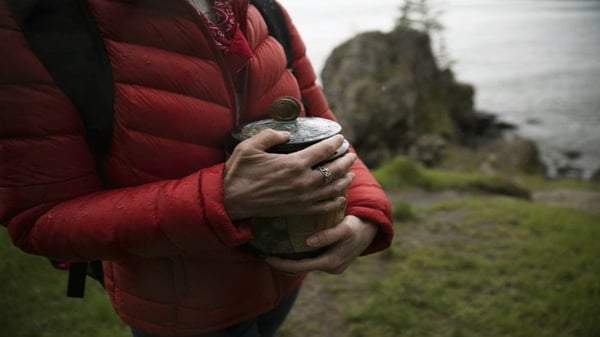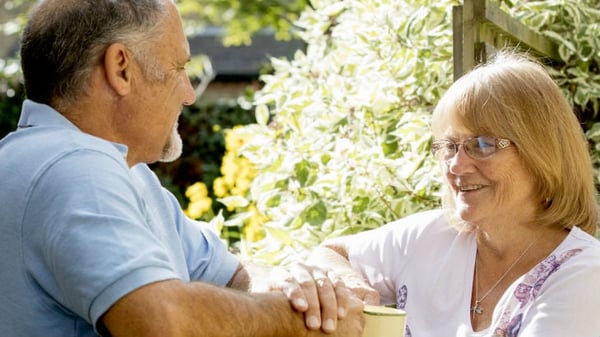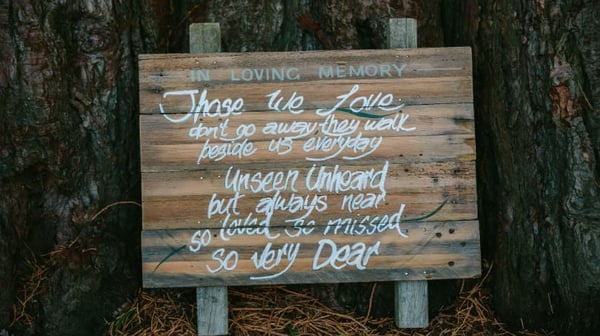What is a direct cremation?
There are few things more personal than deciding what should happen to your body once you pass away, and whether you opt for a direct cremation or a burial funeral, it’s ultimately your call. Research from the University of Bath released in 2022 indicates that “demand has risen for direct cremations”, but what’s driving this change and are the lower costs of direct cremation a factor?

Direct cremation refers to a simple, no-frills cremation without a formal service. There are often no mourners present. If you want a more affordable alternative to a traditional burial or cremation funeral, direct cremation could be the option for you.
The direct cremation process is straightforward. After someone dies, their body is moved to the crematorium where it is cremated in a simple coffin without any attendees. Following the cremation, the family can choose to collect the ashes if they wish. With a direct cremation, there is no funeral director, hearse, hymns and readings, or any features traditionally associated with a funeral. Instead, a funeral professional will assist in setting up the basic tasks to complete a cremation, such as storing and preparing the deceased in the right environment.
- It’s cheaper – while you will pay for some services to be carried out by the funeral professional, direct cremations usually carry lower funeral director charges and other associated costs.
- Personal taste – some people simply don’t wish to have a traditional funeral.
- Simplicity – large funerals can be a logistical challenge, whereas a direct cremation can save your family time and energy during the mourning process.
- A different way of grieving – traditional funerals can be emotionally challenging, but with a direct cremation you always have the option of hosting a more celebratory memorial at a later date.
- A desire to scatter ashes – as with any cremation service, there is the opportunity to focus on scattering the deceased’s ashes in a place of significance, which may take precedence over a formal service or burial.
In a traditional cremation, the body of the departed is taken into the care of funeral directors where it may be visited by close friends or relatives. There is a service of remembrance – usually at the crematorium, where family and friends gather to remember their loved one on the day.
In a direct cremation, much of that process is dispensed with. After the funeral directors have taken the departed into their care, the body is placed into a simple coffin, without embalming. Family and friends are unable to visit their loved one at the chapel of rest. The coffin is transported to the crematorium and cremated without a service, unless an attended service has been paid for.
How do I arrange a direct cremation?
The aftermath of a death is always going to be difficult. But if you’re wondering how to arrange a direct cremation, here’s how you can get the ball rolling in three simple steps.
With a direct cremation, there is no formal commemoration or ceremony, and no hearse or procession; the transportation of the deceased is likely to be in a vehicle marked as a private ambulance rather than a limousine or funeral car. You are also unlikely to see traditional funeral features such as pallbearers, and often a direct cremation is unattended.
After the direct cremation process, the ashes are transferred to an urn. This can then be collected or delivered to you at a future date. Many people choose to scatter ashes in a meaningful location, the crematorium itself, or places of natural beauty like the sea.
You will still need to carry out certain duties even with a direct cremation, such as organising paperwork like the death certificate – you will need to obtain this by registering the death with the Registrar of Births, Deaths and Marriages. You will need to keep the certificate on file and use it to arrange the burial or cremation, or if you’re using a funeral director (which is optional), you can give it to them. Read more about how to make funeral arrangements.
As we've covered, you can still collect the ashes after the cremation, and all direct cremation providers offer a delivery service. If your loved one has not given instructions, you may want to take a look at our article on what to do with ashes after cremation.
While the quotes you receive may vary, the average weighted cost of a direct cremation in 2024 is £1,557, according to research carried out by Legal & General. This figure includes the crematorium fee, funeral director charges and any doctors’ fees (excluding Scotland). As it’s a simpler process, with many of the more expensive elements of a traditional cremation removed, direct cremation can cost significantly less than what you might pay for a more conventional funeral, though prices can differ across the country and between funeral directors.
It’s no secret that people in Britain (and around the world) have being impacted by a cost of living crisis, affecting everything from the price of petrol at the pump to the amount we spend on buying groceries or heating our homes. With the average weighted cost of a burial funeral in 2024 at £5,894 (almost four times as much as a direct cremation), many industry experts are reporting that people are opting for low cost send offs. Legal & General’s own research estimates that the average cost of a UK funeral in 2024 is £4,706 - an increase of 5.75% since 2023.
We've seen that climate considerations and cultural norms have shaped people's attitudes towards funerals. Cost is the main factor that influences people’s funeral arrangements, cited by 58% of respondents in Legal & General's Future of Funerals Research 2023.
While direct cremation is a cost-effective option, it’s not just for those on a budget. Ziggy Stardust himself, David Bowie, opted for a direct cremation rather than a funeral and had his ashes scattered on the island of Bali1.
There is also a misconception that direct cremation is a cold or uncaring way of saying goodbye to a loved one. In fact, many direct cremations are often carried out under the expressed wishes of the deceased and reflect their beliefs.
Also, some people think direct cremations give you a lack of control compared to a service organised by a funeral director. But in reality, you still have the opportunity to celebrate the departed’s life in a fitting way, such as scattering their ashes in their favourite place, or by hosting a memorial with friends and family in attendance.
Yes, you can technically get cremated without a coffin. There is no UK law that stipulates that a coffin must be used, either in a traditional funeral or direct cremation. However, some crematoria may request that a coffin is used for the deceased, so it’s worth having a discussion with the direct cremation provider in advance. Some mourners use a shroud or cardboard box rather than a coffin, as the law does require that a deceased person’s body is not exposed in public.
There is no right or wrong answer as to how you should depart at the end of your life. Do you have to have a traditional funeral service? Ultimately, the answer is no, but every individual is entitled to be remembered in their own preferred way.
The costs of funerals have been rising in recent years, and can put a strain on any family budget, so the lower cost of a direct cremation may be a consideration for many. Also, when booking a direct cremation you may be given greater flexibility with the date and time, depending on the provider.
We all grieve in our own personal way, but it’s fair to say that a standard funeral service comes with its own emotional strains, which some people find difficult and emotionally draining. Indeed, the planning and paperwork associated with traditional funerals can put such a strain on the immediate family straight after the passing of their loved one, and sometimes the service and wake itself can seem like a blur. So one argument in favour of direct cremations is that it lessens the importance of the funeral itself, perhaps helping the bereaved to remember the departed in their own time.
In the end, whether you choose a burial, cremation or direct cremation is a personal decision to be made in consultation with your loved ones. Hopefully you will have plenty of time to consider the options and make the decision that’s right for you.
Sources:
1.https://www.theguardian.com/money/2018/sep/08/david-bowie-direct-cremations-cost-funeral#maincontent





